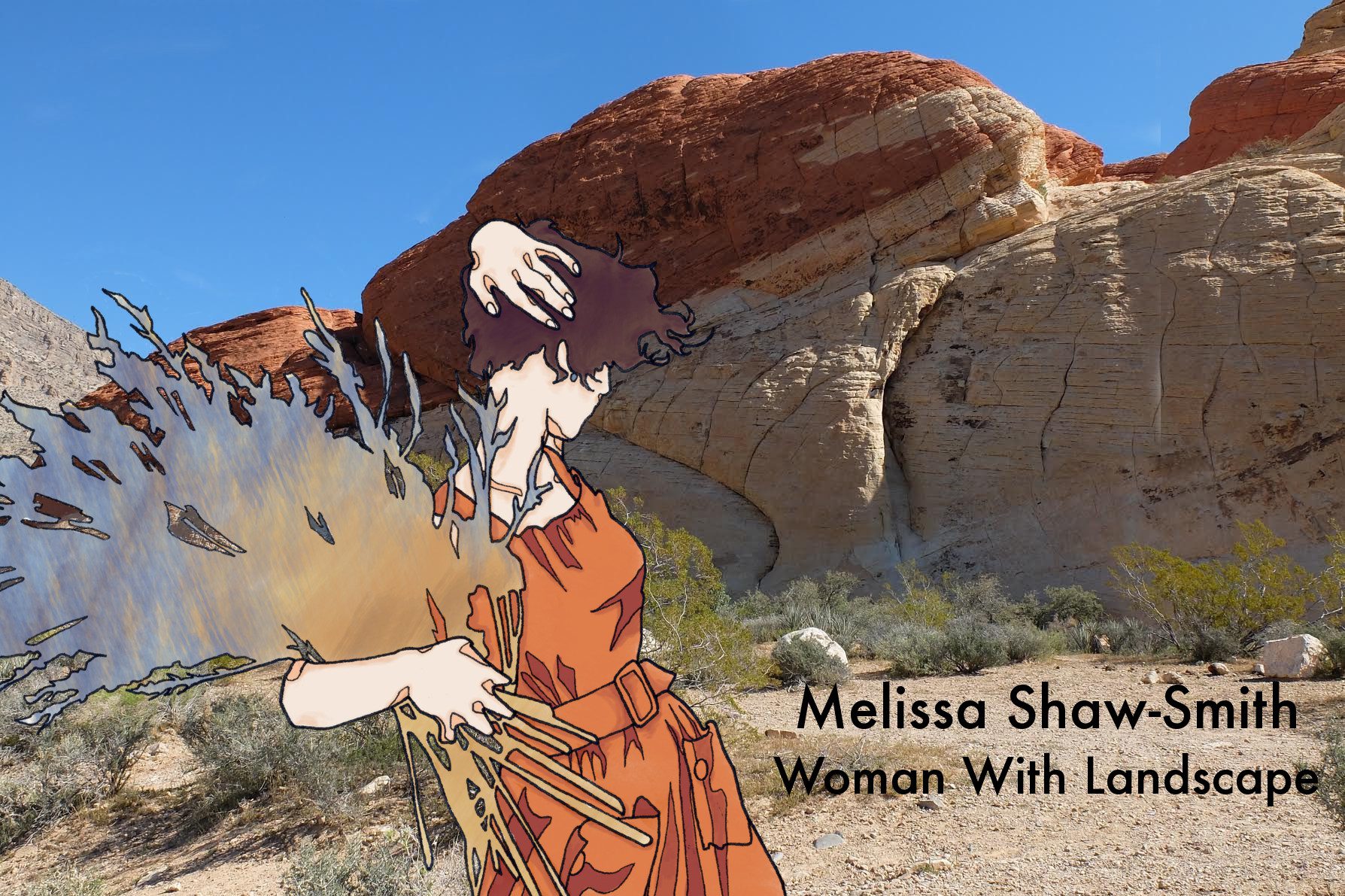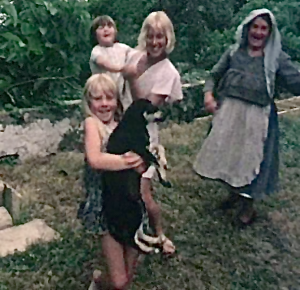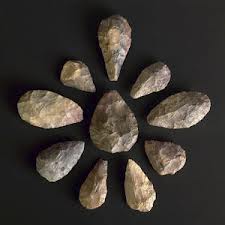 I have a confession:
I have a confession:
I hate my cat.
Am I ashamed?
Mildly so
But I make no bones about it
She smells
She’s fat
I have to wipe her ass
I didn’t ask her to stay
She snuck into the basement and gave birth–
How could I say no to five kittens and two eager kid faces?
Didn’t think she’d stick around
After they were weaned.
She did.
I had her spayed.
She got fat,
Didn’t want to live in the basement any more.
Winter was coming,
How could I refuse?
And she’s been lying around ever since.
I could buy myself a fur coat with all the money I’ve spent on vet bills,
And then she has the nerve
To up and leave.
Just when I think she’s dead and gone
And I’m on the brink of tossing the kitty litter for good,
Dredging up a few fond memories to send her on her way,
She shows up again.
My husband says she’s found herself a fancy man
I say, it’s someone with a readier can opener than mine.
And yet, what can I say,
The animal’s tenacious,
A born survivor,
Still alive and kicking at 17
You’ve got to admire that
In a cat.
Monthly Archives: November 2013
November Morning
 Quiet world.
Quiet world.
Feathers of frost on glass.
The clack of buttons and zippers in the tumble dryer,
Cat snoring stolidly,
Radiators ticking, keeping the cold at bay.
The lone cricket whose slow trill I pinpointed in the spirea
Has gone silent.
And all those boisterous crows and blue jays
Conducting their business in full-throat yesterday,
Have been subdued.
The ‘possums entrails, spilling in pink coils out of its belly onto the road
Have frozen—frozen dinners for turkey vultures.
Low burnt-sienna sunlight through closed lids and closed window
Is still warm enough to bask in.
Greek Island Adventure, 5
In 1973 as a seven-year-old child living the idyllic life on the island of Corfu, I was oblivious to the fact that Greece was in turmoil, writhing under the yoke of the Army Junta (1968-74). My father later informed me that our special invitation to visit the Old Citadel for a feast day celebration, and several other rather bizarre invitations, was so that the secret police could keep tabs on us. I can only imagine that in their eyes, a couple of Irish documentary filmmakers with three small children in tow seemed highly subversive.
On the whole, though, the Corfiots welcomed us with open arms. 
This is how a typical meeting with a stranger would go: Mum and Dad would stop the VW bus on a remote hillside to film a snake Dad had just caught. Out of nowhere, a goat herder or a group of small children would appear. Soon we’d be surrounded by curious faces. And then came the inevitable question. Poú eísai? Where are you from? When we said, Irlandía, initially thrown off by the blonde hair they would say, Ollandía? Ochi, we’d say, No. Irlandía. Their faces would light up in recognition. Their index fingers would go up and invariably they’d go, Boom, boom, boom, imitating the sound of a gun. At the time it was the height of The Troubles in Northern Ireland, with the IRA vehemently resisting the British Government’s occupation, and many in Greece understood that oppression. Immediately, we would become allies. Soon, we learned when asked that question to respond, Irlandía, Boom, boom, boom.
In our village, Junta, or no Junta, people got on with the job of living. And every day there was something new for my sisters and I to marvel at. Traveling trades people often made their way through the narrow streets of Kinopiastes, calling out their services. One of my favorites was the Spoon Man.
 At his familiar cry, doors would open and voices would hail him. He’d stop, open up his bag of tricks on the side of the street and a crowd of housewives would gather, bringing their household cutlery wrapped in their aprons. To a small child, the Spoon Man was better than a magician. Carefully holding a tarnished spoon with a pair of tongs, he’d dip it in a blackened, bubbling pot of sludgy, dull silver-hued liquid. A second later the spoon would emerge, gleaming and winking in the sunlight, it’s silver surface restored to glory.
At his familiar cry, doors would open and voices would hail him. He’d stop, open up his bag of tricks on the side of the street and a crowd of housewives would gather, bringing their household cutlery wrapped in their aprons. To a small child, the Spoon Man was better than a magician. Carefully holding a tarnished spoon with a pair of tongs, he’d dip it in a blackened, bubbling pot of sludgy, dull silver-hued liquid. A second later the spoon would emerge, gleaming and winking in the sunlight, it’s silver surface restored to glory.
Surely this was alchemy—or at least its little sister. 
The traveling peddler, was another of my favorites. Dimitris led his heavily laden donkey, panniers piled high with every imaginable household tool, to our back gate. He’d stop, spread out the choicest selection of combs and headscarves and plastic bowls on a cloth, and wait for customers. Then, sales or no sales, he’d load everything back onto the patient donkey, tie it down securely, and clatter off into the distance, plastic buckets swaying from side to side.
I often wonder how the villagers perceived this Irish family who landed in their midst that spring and summer. They put up with our perpetual curiosity and even seemed to welcome our interest in every aspect of their lives. If my sisters and I ran down to Pappoú’s corner shop to buy a gazoza or some bubble gum, not only would we return with our money still in our pockets, but countless grandmothers sitting on their stoops, or grandfathers flicking worry beads through their fingers would have greeted us. Our friends sought us out, and arm in arm, we paraded around the village until we found some mischief to get into. One day Leni borrowed her mother’s wedding dress and we held an epic Greek wedding in the yard. Another day, Leni and her older sister Angeliki dressed up in their national costumes to give us a show.
The nuns who lived up the hill at the back of the village seemed delighted by our visits. Giggling and chattering away like jackdaws, the young nuns immediately pulled out extra chairs and a big bottle of ouzo and the ubiquitous, sticky kumquat liqueur. Thankfully, this was off limits to kids. But my mother would dutifully take tiny sips of the sickly sweet liqueur. They’d crack walnuts from their trees for us, and offer chunks of nougat.
Occasionally, we did run into a cultural misunderstanding. Since a small boy, my father has hand-raised stray or injured animals, particularly birds. The best pet we ever had was a Jackdaw named Percival that Dad helped us hand-rear after it fell out of it’s nest. We hadn’t been living in Greece long before he acquired a young Little Owl. The plan was to keep it long enough to film it, then release it. During the day it slept in the villa, perched on my father’s tripod. At night, it woke up to eat the live mice we’d caught for it and flutter around the house. One day, we came back from a day of filming and the owl was gone. Later, we found its burnt remains in the alleyway at the back of the house. We learnt that in Greece, old superstitions run deep, and a few people still consider them kakó, or evil. Perhaps this dates back to the ancient Roman belief that owls were harbingers of death, or witches could turn themselves into owls. For most in Greece, though, the owl is seen as a bird of wisdom. In Greek mythology, the owl was the favorite bird of Athene, the Greek Goddess of Wisdom, and appears on early Greek coins.
Sadly our sojourn on Corfu finally came to an end. Gathered around the stone table under the grapevines, we had one last party with the Gardigotti family who had made us feel like we truly belonged. With the record player set in the window, everyone danced around the yard. And one last time we chased fireflies with our new friends. Then it was time to start our long drive home, this time through Macedonia and Yugoslavia, bringing tortoises and olive oil and memories to last a lifetime.
Post script: We did return when I was sixteen, this time, sharing our adventures with my four-year-old brother. Although things had changed, I’m glad to say much of the Greek island magic was still there.
Corfu Adventure, Part 4
When my family and I arrived on Corfu in 1973, we were part of a long line of blow-ins. For a small island, it has a blockbuster of a history, and not surprisingly, features in Greek mythology. Homer’s hero, Odysseus, washed up on it’s shores after being shipwrecked. It’s strategic location between the Adriatic and the Ionian seas made it a great location for trade and an excellent naval base, and it’s turbulent history reflects that. The Corinthians founded the ancient city of Kerkyra around 734 B.C.E., while many others over the millennia, sought to exploit the island including the Romans, Goths, Venetians, French, and British. Interested to read more- http://www.greecetravel.com/corfu/history.html
My sisters and I were lucky enough to see, first hand, evidence of Corfu’s earliest settlers. With Dr. Augustus Sordinas, an expert on Corfu’s early human inhabitants, we explored the cave where he excavated the bones of wild cattle, deer, and hyenas, and flint tools dating from the Paleolithic period, about 25,000 years ago.
At Sidari in the north of the island we were not the first to camp by a small river leading down to the sea. In the sandy cliff face we studied the layers of fossilized shells left over from Stone Age clambakes, and shards of flint, chipped into workable tools. I still treasure the finely worked flint spear tip I found poking out of the mud. We visited a man who lived in a remote coastal area. His home was built from marsh reeds, and inside, his bed was a raised pallet of earth. We watched in awe as he caught his dinner of sardines using a net weighted down with rocks that he cast into the shallow bay. He then offered Mum and Dad wine made from his own foot-crushed grapes. His lifestyle had probably changed little from that of his ancestors, hundreds, if not thousands, of years ago.
Some of the strongest memories of living on Corfu revolve around food. At first, my seven-year-old palate craved cornflakes and peanut butter, a throwback to home. I soon saw the light, and a pan full of fresh-caught sardines, fried to a crisp in olive oil was a treat—eyeballs and all. I even came to like the chewy texture of octopus.
Our favorite place to eat was on an unprepossessing backstreet in Corfu’s main town, Kerkyra. The tiny neighborhood restaurant had two tables outside and the same number inside. Grilled lamb kebabs, Greek salad fragrant with oregano and olive oil, and slivered potato fries—that’s all they made, but that’s all they needed to make. Afterwards we wended our way through the labyrinth of narrow, cobblestone streets of the old town, little changed since the Venetians laid them out five hundred years earlier.
At Spianada square, overlooked by the ancient Citadel and moat (also courtesy of the Venetians), we joined in the passeo of Corfiots strolling along the esplanade flanked by its arched colonnade filled with cafes and restaurants. Sometimes we’d sit and enjoy a bottle of the local ginger beer, or lick ice cream and listen to the brass band playing in the bandstand. On Sunday afternoons, we watched the strange sight of cricket being played, a reminder that Corfu was a British colony in the 19th century. On our way home, we had to stop at a tiny dairy shop for a dessert treat. They served the most delicious, cinnamon-topped rice pudding. As soon as Easter was over and the restrictions of Lent, they switched to serving equally wonderful rich, creamy goats milk yogurt.
Another one of our greatest pleasures on Corfu was swimming. In addition to the small tourist beaches, surrounded by hotels, there were plenty of remote swathes of sand with only seabird footprints. Mum and Dad kitted us out with snorkels and flippers and we entertained ourselves for hours while Dad fiddled with his leaky underwater camera. Tourists would sit up and gawk as three small, blonde children swam in, often from half a mile or more offshore, and trouped out of the water like ducklings.
Some of the best beaches for snorkeling were the rocky coves reached by a steep cliff path. The water was crystal clear and teeming with life. After a morning of swimming, we’d picnic in the olive groves: hunks of fresh bread doused in musky, green olive oil and topped with slabs of salty feta and slices of sweet tomato, and a handful of pungent little olives. Desert might be a juicy peach, or a square of sweet halvah made from crushed sesame seeds and honey. Heaven!
When it came time for my 8th birthday in the middle of July, I knew exactly what I wanted—a watermelon. I had fantasized about that watermelon for months, keeping my eye out for it every time we went to the market. The Irish climate precluded growing anything more exciting than cabbage, potatoes, and the rare zucchini in the early 70s, so this would be a first. On the morning of my birthday, my excitement knew no bounds at the sight of that huge, dark green globe. I carried it around the neighborhood showing it off to all my friends. Just as I staggered home with it, my arms gave out. Splat! It landed on the cobblestones in a pink, mushy mess. I was heartbroken—until Mum took me down the village to the watermelon man and I picked out another from his huge pyramid of ripe fruit.
To this day, nothing says summer and Greece and birthday quite like a slice of sweet, crisp watermelon.
Fifth & final installment coming soon















